Indigestion
How to submit an article:
- Registered users can submit any published journal article that has a unique DOI (Digital Object Identifier) name or link to Research Hub.
- For example, you can paste the full DOI link:
https://doi.org/10.1109/5.771073or just the DOI name:10.1109/5.771073into the field above and click submit. - The person who is first to submit a valid article to Research Hub will forever be credited for it, and every article submission earns you +6 Research Points.
Indigestion, also known as dyspepsia, is a common digestive disorder characterised by discomfort or pain in the upper abdomen, often accompanied by symptoms such as bloating, nausea, and belching.
Also known as: Dyspepsia, Functional Dyspepsia, Postprandial Distress Syndrome
Related Topics
Published research studies are articles that present the findings of original research that has undergone a peer-review process and has been made publicly available in scholarly journals, books or other media.
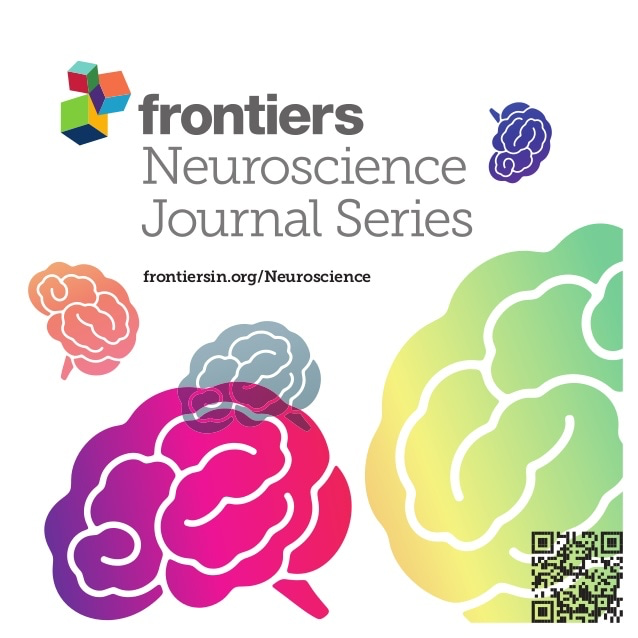
Chinese Herbal Medicine for Functional Dyspepsia With Psychological Disorders: A Systematic Review and Meta-Analysis
2022 Jul 14 Frontiers in Neuroscience Luo X, Wang L, Fang S, Qing X, Jiang T, Yang Y, et al.
Systematic Review Meta-Analysis Anxiety Chinese Herbal Medicine Depression IndigestionChinese herbal medicine shows promising and safe outcomes in relieving functional dyspepsia symptoms and associated psychological disorders.
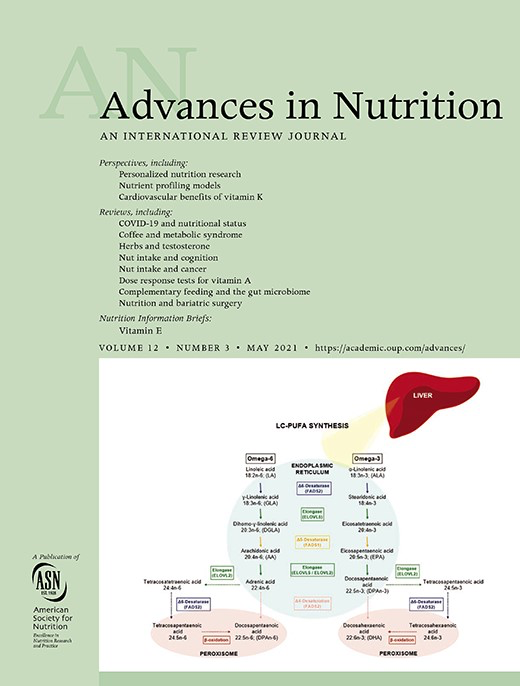
Habitual Green Kiwifruit Consumption Is Associated with a Reduction in Upper Gastrointestinal Symptoms: A Systematic Scoping Review
2022 May Advances in Nutrition Bayer SB, Frampton CM, Gearry RB, Barbara G
Review Article Irritable Bowel Syndrome KiwifruitConsuming kiwifruit, particularly the green variety, can effectively alleviate upper gastrointestinal symptoms like abdominal discomfort, pain, and indigestion.

Efficacy and Safety of Chinese Herbal Medicine Xiao Yao San in Functional Gastrointestinal Disorders: A meta-Analysis and Trial Sequential Analysis of Randomized Controlled Trials
2022 Jan 20 Frontiers in Pharmacology Liu Q, Shi Z, Zhang T, Jiang T, Luo X, Su X, et al.
Systematic Review Meta-Analysis Xiao Yao San Functional gastrointestinal disorders Irritable Bowel Syndrome Indigestion ConstipationXiao Yao San can improve symptoms and reduce recurrence rates in patients with disorders of gut-brain interaction.
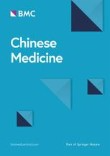
Chinese herbal medicine for functional dyspepsia: a network meta-analysis of prokinetic-controlled randomised trials
2021 Dec 20 Chinese Medicine Ho, L., Zhong, C.C.W., Wong, C.H.L. et al.
Modified Zhi Zhu Decoction and Xiao Pi Kuan Wei Decoction may be considered as an alternative for patients unresponsive to prokinetics.
Meta-Analysis Indigestion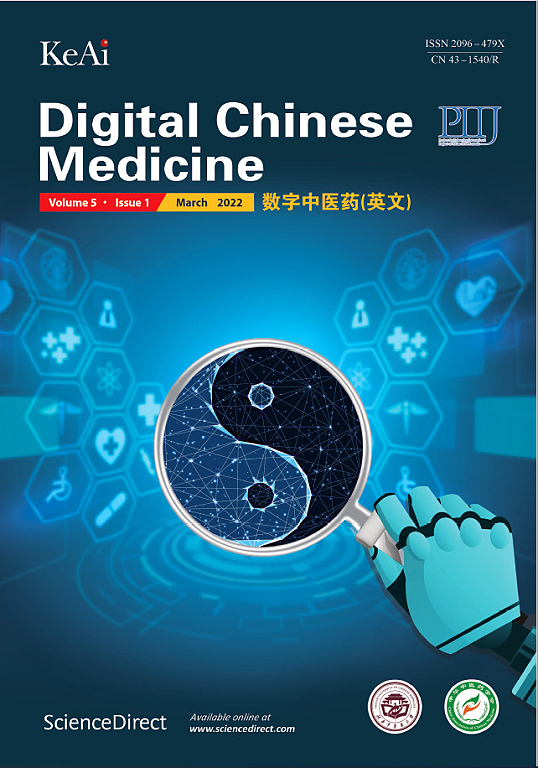
Traditional Chinese medicine compounds for the treatment of functional dyspepsia: an updated meta-analysis of randomized, double-blind, placebo-controlled trials
2021 Dec Digital Chinese Medicine Luo Xiaoying, Yang Yang, Mao Xinyong, Song Gengqing, Liu Qian, Jiang Tianyuan, et al.
Our results showed that traditional Chinese medicine (TCM) compounds treatment could significantly alleviate functional dyspepsia (FD) symptoms, improve gastric emptying in FD patients, and help to improve their quality of life. No severe adverse reactions have been reported in clinical applications.
Meta-Analysis IndigestionResearch insights are moderated by the Research Hub team and offer an at-a-glance overview of interesting research findings.

2022 Frontiers in Neuroscience
Chinese herbal medicine shows promising and safe outcomes in relieving functional dyspepsia symptoms and associated psychological disorders.
Systematic Review Anxiety Chinese Herbal Medicine Depression
Chinese Herbal Medicine for Functional Dyspepsia With Psychological Disorders: A Systematic Review and Meta-Analysis
Luo X, Wang L, Fang S, Qing X, Jiang T, Yang Y, et al.

2022 Advances in Nutrition
Consuming kiwifruit, particularly the green variety, can effectively alleviate upper gastrointestinal symptoms like abdominal discomfort, pain, and indigestion.
Review Article Irritable Bowel Syndrome Kiwifruit
Habitual Green Kiwifruit Consumption Is Associated with a Reduction in Upper Gastrointestinal Symptoms: A Systematic Scoping Review
Bayer SB, Frampton CM, Gearry RB, Barbara G

2022 Frontiers in Pharmacology
Xiao Yao San can improve symptoms and reduce recurrence rates in patients with disorders of gut-brain interaction.
Systematic Review Constipation Functional gastrointestinal disorders Irritable Bowel Syndrome Xiao Yao San
Efficacy and Safety of Chinese Herbal Medicine Xiao Yao San in Functional Gastrointestinal Disorders: A meta-Analysis and Trial Sequential Analysis of Randomized Controlled Trials
Liu Q, Shi Z, Zhang T, Jiang T, Luo X, Su X, et al.
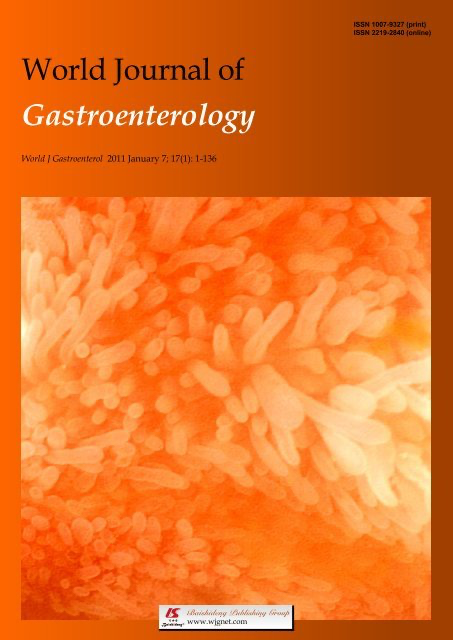
2020 World Journal of Gastroenterology
Positive effects of acupuncture and electroacupuncture were observed in regulating gastric motility, gastric accommodation, mental status, gastrointestinal hormones, and central and autonomic functions while improving dyspeptic symptoms and quality of life.
GERD
Effects and mechanisms of acupuncture and electroacupuncture for functional dyspepsia: A systematic review
Guo Y, Wei W, Chen JD

2016 Evidence-Based Complementary and Alternative Medicine
Acupuncture was superior to either sham acupuncture or medication (including Itopride, Mosapride, and Domperidone) in relieving the major symptoms of functional dyspepsia.
Systematic Review
Acupuncture for Functional Dyspepsia: What Strength Does It Have? A Systematic Review and Meta-Analysis of Randomized Controlled Trial
Bo Pang, Tao Jiang, Yuan-Hao Du, Jing Li, Bo Li, Ya-Cai Hu, et al.
Review Articles
Review articles summarise and critically evaluate the current state of research on a specific topic or field by synthesising multiple primary research studies.

Chinese Herbal Medicine for Functional Dyspepsia With Psychological Disorders: A Systematic Review and Meta-Analysis
2022 Jul 14 Frontiers in Neuroscience Luo X, Wang L, Fang S, Qing X, Jiang T, Yang Y, et al.
Systematic Review Meta-Analysis Anxiety Chinese Herbal Medicine Depression IndigestionChinese herbal medicine shows promising and safe outcomes in relieving functional dyspepsia symptoms and associated psychological disorders.

Habitual Green Kiwifruit Consumption Is Associated with a Reduction in Upper Gastrointestinal Symptoms: A Systematic Scoping Review
2022 May Advances in Nutrition Bayer SB, Frampton CM, Gearry RB, Barbara G
Review Article Irritable Bowel Syndrome KiwifruitConsuming kiwifruit, particularly the green variety, can effectively alleviate upper gastrointestinal symptoms like abdominal discomfort, pain, and indigestion.

Efficacy and Safety of Chinese Herbal Medicine Xiao Yao San in Functional Gastrointestinal Disorders: A meta-Analysis and Trial Sequential Analysis of Randomized Controlled Trials
2022 Jan 20 Frontiers in Pharmacology Liu Q, Shi Z, Zhang T, Jiang T, Luo X, Su X, et al.
Systematic Review Meta-Analysis Xiao Yao San Functional gastrointestinal disorders Irritable Bowel Syndrome Indigestion ConstipationXiao Yao San can improve symptoms and reduce recurrence rates in patients with disorders of gut-brain interaction.

Acupuncture as an Add-On Treatment for Functional Dyspepsia: A Systematic Review and Meta-Analysis
2021 Jul 26 Frontiers in Medicine Kwon C-Y, Ko S-J, Lee B, Cha JM, Yoon JY and Park J-W
In combination with conventional WM, acupuncture may be able to improve the symptoms of patients with functional dyspepsia (FD).
Systematic Review Meta-Analysis Indigestion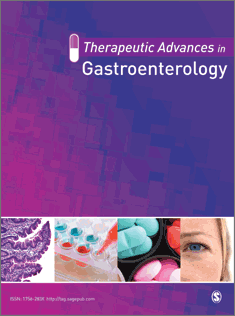
Chinese herbal medicine for functional dyspepsia: systematic review of systematic reviews
2018 Jul 16 Therapeutic Advances in Gastroenterology Chu, Michael H. K., et al.
Chinese herbal medicine (CHM) can be considered as an alternative for the treatment of functional dyspepsia (FD) symptoms when prokinetic agents and proton pump inhibitors are contraindicated.
Systematic Review IndigestionClinical Trials
Clinical trials are research studies that involve people and are conducted to evaluate the safety and efficacy of new treatments or interventions, such as drugs, medical devices, or behavioural therapies.

Effect of Acupuncture for Postprandial Distress Syndrome: A Randomized Clinical Trial
2020 May 12 Annals of Allergy, Asthma & Immunology Yang JW, Wang LQ, Zou X, Yan SY, Wang Y, Zhao JJ, et al.
This clinical trial showed that Postpradial Distress Syndrome (PDS) showed improvement with acupuncture. Patients faced less upper abdominal bloating and early satiety after 4 weeks of treatment. Overall digestion and mental health were also improved.
Randomised Controlled Trial Indigestion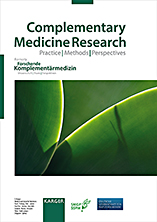
Which Subtype of Functional Dyspepsia Patients Responses Better to Acupuncture? A Retrospective Analysis of a Randomized Controlled Trial
2015 Mar Complementary Medicine Research Ma, T., Zeng, F., Li, Y., et al.
Functional Dyspepsia patients with early fullness responded effectively to the acupuncture therapies. The positive therapeutic effect of acupuncture improved epigastric pain, heart burn and post meal bloat-ness.
Randomised Controlled Trial IndigestionStudy Protocols
Published study protocols are detailed plans that outline the objectives, methodology, statistical analyses, and organisation of a research study that have been made publicly available for others to review and use as a reference.
Presentation Slides

Systematic Review
Chinese herbal medicine shows promising and safe outcomes in relieving functional dyspepsia symptoms and associated psychological disorders.
Luo X, Wang L, Fang S, Qing X, Jiang T, Yang Y, Su X, Wei W

Review Article
Consuming kiwifruit, particularly the green variety, can effectively alleviate upper gastrointestinal symptoms like abdominal discomfort, pain, and indigestion.
Bayer SB, Frampton CM, Gearry RB, Barbara G

Systematic Review
Xiao Yao San can improve symptoms and reduce recurrence rates in patients with disorders of gut-brain interaction.
Liu Q, Shi Z, Zhang T, Jiang T, Luo X, Su X, Yang Y and Wei W

Positive effects of acupuncture and electroacupuncture were observed in regulating gastric motility, gastric accommodation, mental status, gastrointestinal hormones, and central and autonomic functions while improving dyspeptic symptoms and quality of life.
Guo Y, Wei W, Chen JD

Systematic Review
Acupuncture was superior to either sham acupuncture or medication (including Itopride, Mosapride, and Domperidone) in relieving the major symptoms of functional dyspepsia.
Bo Pang, Tao Jiang, Yuan-Hao Du, Jing Li, Bo Li, Ya-Cai Hu, Qiu-Han Ca
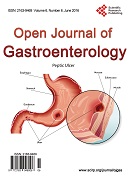
Clinical Study
Drinking hydrogen carbonate-rich mineral water significantly reduces heartburn episodes and improves quality of life in individuals with dyspeptic symptoms.
Pohl U, Auinger A, Bothe G, Uebelhack R

Network Pharmacology
The consumption of kiwifruit with a meal can increase the rate and extent of the hydrolysis of protein.
Donaldson B, Rush E, Young O, Winger R
Executive Summary
Write an executive summary in the form of a blog article on the topic of "Research into Chinese medicine treatment for Indigestion" summarising the research below and using language that can be easily understood by patients and avoiding medical jargon using a professional and caring tone of voice.
Write an executive summary in the form of a blog article on the topic of "Researched Chinese medicine treatments for Indigestion" summarising the research below in an objective and easy to understand way, and using language that can be easily understood by patients. Group the article into Chinese medicine treatments first, followed by nutrition and other treatments. Avoid using medical jargon and use a professional and caring tone of voice.
Write me a concise but easy to understand executive summary on the topic of "Chinese medicine treatments for Indigestion" based on the following research that I will give you. Your summary should be 2 paragraphs long in Australian English spelling and include references to the studies.
A Systematic Review published in 2022 in the journal Frontiers in Neuroscience found that Chinese herbal medicine shows promising and safe outcomes in relieving functional dyspepsia symptoms and associated psychological disorders. The methodology for this research involved a comprehensive search across various libraries and databases, such as PubMed, Embase, Cochrane Library, Web of Science, and various Chinese data sources, seeking randomized controlled trials where functional dyspepsia was treated with Chinese herbal medicine. The aim was to assess the efficacy and safety of this type of treatment for functional dyspepsia. Two researchers independently conducted each stage of the process, from searching the sources, screening the documents, extracting data, and assessing risk biases within the included studies. They used RevMan 5.4 software to do a meta-analysis of the selected research materials. The discussion of their findings showed that treatment with Chinese herbal medicine significantly alleviated the symptoms of functional dyspepsia, compared to both a placebo group and a group treated with traditional prokinetic agents and flupentixol melitracen. Patients treated with Chinese herbal medicine reported higher total effective rates and lower total symptom scores, along with smaller depression and anxiety scores. The symptoms of functional dyspepsia, in this case, were improved more successfully with Chinese herbal medicine than with other treatment types, without any significant adverse reactions.
A Review Article published in 2022 in the journal Advances in Nutrition found that Consuming kiwifruit, particularly the green variety, can effectively alleviate upper gastrointestinal symptoms like abdominal discomfort, pain, and indigestion. The research undertook a systematic scoping review of three electronic databases from 1947 until January 2021. The team searched for clinical trials that investigated the effects of either green or gold kiwifruit or their compounds on upper gastrointestinal symptoms. They focused on the studies that had the symptom relief as secondary outcomes in healthy participants or those with functional constipation or irritable bowel syndrome with constipation. The outcomes were analyzed based on the type of measurement tools used; one being the Gastrointestinal Symptom Rating Scale (GSRS) and the others being non-GSRS methods. The analysis unveiled that out of the identified 12 clinical trials, with a total of 661 participants, only five used the GSRS to assess symptom relief. Green kiwifruit showed notable results in reducing abdominal discomfort and pain. Kiwifruit consumption, in general, appeared to diminish indigestion. While the number of studies reporting on symptom relief using a comparable measurement was limited, the evidence for kiwifruit's positive efficacy on gastrointestinal symptom relief remained consistent.
A Systematic Review published in 2022 in the journal Frontiers in Pharmacology found that Xiao Yao San can improve symptoms and reduce recurrence rates in patients with disorders of gut-brain interaction. The paper's methodology involved a meta-analysis of randomized controlled trials found in seven databases, up until November 22, 2021. The trials, which totaled 48 all together, were included to determine the efficacy of Xiao-Yao-San in treating disorders of gut-brain interaction (previously known as functional gastrointestinal disorders). A range of measures, including therapeutic efficacy, symptom score, Self-Rating Anxiety Scale score, Self-Rating Depression Scale score, and the recurrence rate, were analysed using both random-effects and fixed-effects models, as well as trial sequential analysis. In terms of results, Xiao-Yao-San showed a marked improvement in the effective rate of managing disorders of gut-brain interaction compared to western drugs, both when used alone and in combination with western medicine. The paper also found the treatment notably reduced symptom scores, anxiety scores, and depression scores for patients with the disorder. Further, instances of recurrence were also reduced. Overall, Xiao-Yao-San was well tolerated and no serious adverse events were reported in any of the trials included in this analysis.
A published in 2020 in the journal World Journal of Gastroenterology found that Positive effects of acupuncture and electroacupuncture were observed in regulating gastric motility, gastric accommodation, mental status, gastrointestinal hormones, and central and autonomic functions while improving dyspeptic symptoms and quality of life. In this systematic review, we pooled randomized controlled trials with mechanistic investigations of acupuncture or electroacupuncture in improving dyspeptic symptoms, and illustrated the existing results that may provide potential explanations for the therapeutic effects. The findings of included studies in this review suggest that acupuncture and electroacupuncture can improve gastric motility and accommodation, regulate gastrointestinal hormones and mental status, and alter certain central and autonomic functions in patients with functional dyspepsia. However, due to limitations in the included articles, high-quality studies with well-planned designs and multiregional investigations are necessary to provide more convincing and credible evidence.
A Systematic Review published in 2016 in the journal Evidence-Based Complementary and Alternative Medicine found that Acupuncture was superior to either sham acupuncture or medication (including Itopride, Mosapride, and Domperidone) in relieving the major symptoms of functional dyspepsia. Acupuncture therapy (including manual and electroacupuncture) achieved statistically significant effect in improving the overall symptoms and quality of life of functional dyspepsia patients comparing to sham acupuncture and is superior to medication (prokinetic agents) in ameliorating the major symptoms of functional dyspepsia (postprandial fullness and early satiation).
A Clinical Study published in 2016 in the journal Open Journal of Gastroenterology found that Drinking hydrogen carbonate-rich mineral water significantly reduces heartburn episodes and improves quality of life in individuals with dyspeptic symptoms. This one-arm pilot study involved 56 men and women experiencing frequent heartburn. Participants were instructed to drink 1.5 liters of mineral water high in hydrogen carbonate daily for six weeks. They kept a daily diary to record the number and duration of heartburn episodes. Additionally, several questionnaires were used to assess the effects of the water on their condition and quality of life. These included the Reflux Disease Questionnaire (RDQ), Quality of Life in Reflux and Dyspepsia questionnaire (QOLRAD), Gastrointestinal Quality of Life Index (GILQI), and the Short Form Health Survey (SF-12). The study analyzed changes in symptoms and quality of life before and after the treatment using the Wilcoxon test. The study reported a significant decrease in the number of weekly heartburn episodes and the duration of each episode after the six-week intervention. Participants also experienced a notable reduction in the severity of heartburn, regurgitation, and dyspeptic complaints. There was a significant improvement in disease-specific quality of life as measured by GILQI and QOLRAD, and in general health-related quality of life as assessed by SF-12. These findings suggest that drinking hydrogen carbonate-rich mineral water can be an effective alternative treatment for dyspeptic symptoms and heartburn, leading to an enhanced quality of life.
A Network Pharmacology published in 2014 in the journal Nutrients found that The consumption of kiwifruit with a meal can increase the rate and extent of the hydrolysis of protein. This in vitro study has shown that in elevated gastric pH conditions, such as may present with compromised gastric function, the addition of kiwifruit protease more than doubled the rate of hydrolysis of meat protein. This novel finding supports the hypothesis that consumption of kiwifruit with a meal can increase the rate and extent of the hydrolysis of protein. Evidence is also provided that when the added acid concentration decreased from 0.074 M to 0.022 M (HCl), pepsin activity reduced by 50% and kiwifruit activity increased by 300%. This evidence indicates that kiwifruit may exert its influence on digestion by increasing the extent of protein digestion in the gastric medium when the secretion of pepsin and/or hydrochloric acid is less than optimal. It is reported [12] in a study of 365 healthy subjects, average fasting gastric pH was 2.16 ± 0.11 for men and 2.79 ± 0.18 for women, but in another study of 79 healthy elderly people [13], 11% of the participants recorded fasting gastric pH > 5.0 throughout the study.
Moderation Tools
Topic
Sign In
Users not signed in are limited to viewing the 5 most recent items of content.
